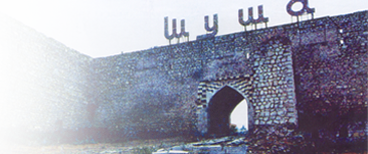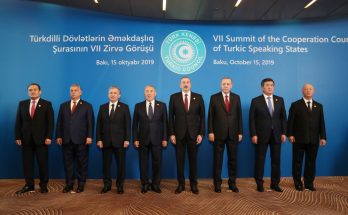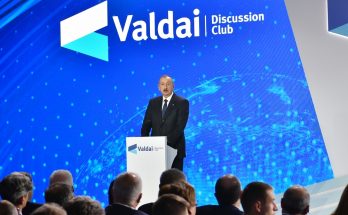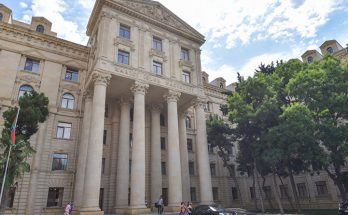 The term “frozen” is misleading when describing the Nagorno-Karabakh conflict, OSCE Parliamentary Assembly Special Representative to the South Caucasus Goran Lannmarker said at a meeting with the organization’s Azerbaijani delegation at a session this week.
The term “frozen” is misleading when describing the Nagorno-Karabakh conflict, OSCE Parliamentary Assembly Special Representative to the South Caucasus Goran Lannmarker said at a meeting with the organization’s Azerbaijani delegation at a session this week.
“The parties continue to incur losses. Hence, the term ‘frozen conflict’ is misleading,” he stressed.
Azerbaijani Parliamentary Vice Speaker Bahar Muradova, who heads the Azerbaijani delegation, agreed with Lennmarker’s statement, adding that the term paints a false picture of the situation as civilians and soldiers are still dying in shootings on the contact line.
She also noted that the dead body of an Azerbaijani soldier has yet to be returned to Azerbaijan.
Azerbaijani military serviceman Mubariz Ibrahimov was killed June 18-19 by Armenian fire.
“Recently, the Armenian side broke the ceasefire when the Azerbaijani and Armenian presidents had negotiations in St. Petersburg. As a result, the Azerbaijani soldier was killed and his dead body has not been transferred to us until now, which is contrary to the international conventions and hurt the feelings of our people. On this occasion, I urge our Armenian colleagues to assist us in getting the soldier’s dead body,” Muradova said.
Muradova asked Lennmarker to express his views on the Armenian side’s activities. “Yes, you can not solve this problem for us, but you are entitled to express a clear view of the representative and rapporteur on this issue,” she said.
The conflict between the two South Caucasus countries began in 1988 when Armenia made territorial claims against Azerbaijan. Armenian armed forces have occupied 20 percent of Azerbaijan since 1992, including the Nagorno-Karabakh region and 7 surrounding districts.
Azerbaijan and Armenia signed a ceasefire agreement in 1994. The co-chairs of the OSCE Minsk Group – Russia, France, and the U.S. – are currently holding the peace negotiations.
Armenia has not yet implemented the U.N. Security Council’s four resolutions on the liberation of the Nagorno-Karabakh region and the occupied territories.
Trend




